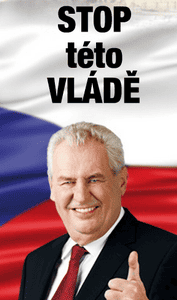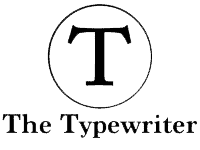In June this year, the Czech Prime Minister Petr Necas resigned after it was revealed that members of his staff were involved in a possible corruption affair. He was supposed to be replaced by a new representative of the conservative coalition government and everything would continue smoothly. This would most likely have been the case, had Czechs not elected Milos Zeman as President. The former socialist premier used the limitations of the Czech constitution to his advantage and has appointed an interim government instead. Even though this government has been repealed by the parliament, the former coalition deputies were unable to form a new government and thus the Czech Republic moves to early elections at the end of October.
An unexpected government

Czech PM resigns after the arrest of his chief of staff (image: Právo)
During the 2010 parliamentary election the front-runners to lead the country were the Social Democrats (CSSD). Surprisingly, the results meant a second chance was given to the strongest centre-right party : the Civic Democratic Party (ODS), whose platform featured commitments to form a government that preached austerity; to reform key laws and finally spearhead a crackdown on corruption.
It would be unfair to say that all the measures taken by this cabinet were wrong. However in May 2013, Petr Necas stepped down after the police arrested important members of his party as well as his chief of staff due to a corruption scandal. The Necas cabinet has also failed to reduce the debt or boost the economy. Despite the fact that many of the imposed reforms were sensible, Necas and his ministers failed to convince the public of their practicality. His stewardship thus ended with one of the lowest approval ratings since 1989.
An unexpected president

“STOP THIS GOVERNMENT!” Zeman’s campaign motto. (image: idnes.cz)
Despite Milos Zeman being grouped with previous Czech presidents Vaclav Havel and Vaclav Klaus as one of the key political personalities of the 1990s, his victory in the 2013 presidential election was not anticipated. He has not held a public post since the end of his term as PM in 2002 and there was no support given to him by CSSD, as he previously left the party.
There are three essential reasons for his victory. Firstly, the Necas government has lost the support of the public, which favours the left at the moment and allows Zeman to present himself as the main socialist leader prepared to ‘stop the government’. Secondly, his campaign was very effective and not afraid to use half-truths about the success of his premiership. Lastly, his main opponent, Karel Schwarzenberg (Necas’s foreign minister) has not managed to convince the voters leaning to the left that he can speak for them, as the government he took office in has considerably ignored them.
Zeman was criticised for aiming his campaign against the conservative government, as it is not the President who should intervene in executive matters. In fact many analysts at that time proclaimed that he cannot put an end to the government. Today we know that given the right circumstances Zeman will use his formal powers to the utmost limits of the constitution in order to achieve his goals. Not only has he appointed his supporter and personal friend Jiri Rusnok as premier, but he has proclaimed that so-called constitutional traditions respected by his two predecessors are ‘idiotic’ and that he will subsequently not consider them. This is probably one of the greatest flaws of the Czech system, exemplifying the lack of checks and balances that should prevent individuals such as Zeman from intervening in matters beyond their authority.
Expected results
As the context of this most recent episode matters more than the electoral situation, focusing on the current polls and the different parties running for seats would be tiresome and repetitive.
What needs to be said is that the upcoming election is not so much about whether the left or the right wins, but whether there will be enough support for a government with a pragmatic leader who will be able to put the President back in his place as a representative and advisory figure, rather than an activist with a trouble-making streak. The recreation of elementary trust between the public and its lawmakers must also be reinstated. The main risk is that as people are increasingly fed up with the ongoing political instability, they will vote for newly formed, weak parties whose representatives will (ab)use their votes to weaken the upcoming government(s). Like 2010, the Social Democrats are expected to win the elections, but are they going to win the duel with Zeman, their post-communist founding father, or not?

“IF ELECTIONS COULD CHANGE SOMETHING, THEY’D OUTLAW IT A LONG TIME AGO!” – this illustrates the disappointment of many Czechs with the ongoing political instability. (image: cz.altermedia.info)
